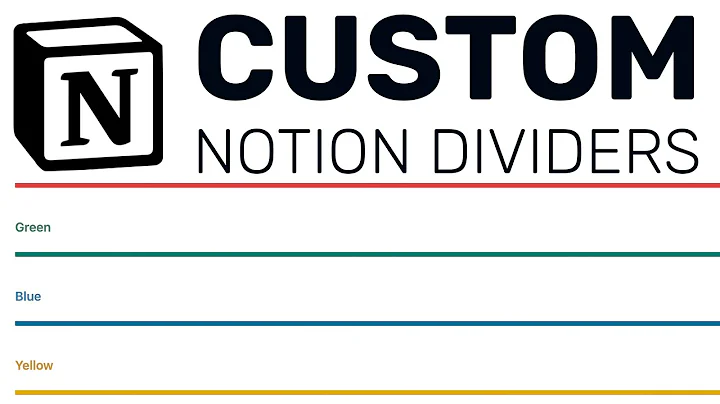Navigating Divorce: How to Keep Your House and Financial Stability
Table of Contents
- Introduction
- Determining the Value of the House
- Assessing Mortgage and Other Debts
- Calculating Equity and Buyout Amount
- Evaluating Other Assets
- Considerations for Retirement Accounts
- Refinancing Options
- Qualifying for a Mortgage
- Renting vs. Owning Costs
- Co-owning the House Temporarily
- Conclusion
How to Keep the House in a Divorce: A Comprehensive Guide
Divorce can be an emotionally and financially draining process, and one of the most common concerns for individuals going through a divorce is whether they can keep the family house. As a certified divorce financial analyst (CDFA), I often assist clients in navigating this complex decision. In this article, I will guide you through the analysis required when determining the feasibility of keeping the house during a divorce. So, if you find yourself wondering, "Can I keep my house?", let's dive into the factors you need to consider.
1. Introduction
Divorce puts individuals in a position where important decisions about their shared assets need to be made. Among these decisions, deciding the fate of the family home can be particularly challenging and emotionally charged. To determine whether keeping the house is a viable option, several factors need to be carefully evaluated. These factors include the current value of the house, existing mortgage and debts, available equity, other assets, and potential refinancing options. Let's explore each of these aspects in detail to gain a better understanding of the complexities involved.
2. Determining the Value of the House
The first step in assessing the option of keeping the house is determining its current value. While online platforms such as Zillow or Redfin can provide a starting point, it is crucial to remember that their estimates may not always be accurate. Consider consulting a real estate agent or obtaining a professional appraisal to obtain a more precise value. By knowing the accurate value of your house, you can make informed decisions throughout the divorce process.
3. Assessing Mortgage and Other Debts
Besides the primary mortgage, it is vital to consider any additional debts associated with the house. This includes home equity lines of credit (HELOCs), home equity loans, or solar loans. Understanding the total debt on the house is crucial in calculating its equity and buyout amount later on. Take into account any outstanding balances on these debts, as they will directly impact the overall financial picture.
4. Calculating Equity and Buyout Amount
Equity is a critical factor when determining if you can keep the house in a divorce. To calculate equity, subtract the total debt on the house from its current value. The remaining amount represents the equity. If you wish to retain ownership of the house, you will need to buy out your spouse's share of the equity. This buyout amount should be fair and agreed upon by both parties to ensure a smooth divorce settlement.
5. Evaluating Other Assets
Apart from the house, it is essential to consider other assets you and your spouse own. In community property states like California, all marital assets are typically divided equally. If the value of these assets is significant, it may help offset the financial burden of keeping the house. However, if there are limited other assets available, maintaining ownership of the house could pose challenges and require careful financial planning.
6. Considerations for Retirement Accounts
Retirement accounts can significantly impact the financial aspects of keeping the house. Depending on the circumstances and state laws, the value of retirement accounts may need to be divided equally between both parties. When comparing the value of retirement assets to the equity in the house, it's essential to consider the tax implications. Keep in mind that the after-tax value of a dollar in equity may differ from a dollar in a retirement account due to potential tax liabilities upon withdrawal.
7. Refinancing Options
If you decide to keep the house, refinancing may be necessary, especially if the mortgage is currently under both spouses' names. When refinancing, the person retaining the house will need to qualify for a new mortgage in their name alone. This involves meeting income and credit requirements set by lenders. If your income is not sufficient to qualify for the desired mortgage amount, factors such as child support or spousal support may be considered as qualifying income.
8. Qualifying for a Mortgage
When seeking to refinance the mortgage, it is crucial to assess whether your income meets the lender's requirements. If you work part-time or have limited income, obtaining a mortgage in your name alone may present challenges. However, by exploring possible options like child support or spousal support, it may be possible to demonstrate qualifying income. Collaborating with your spouse or going through mediation can help streamline this process and find a mutually beneficial solution.
9. Renting vs. Owning Costs
One common argument for keeping the house is the perception that renting is more expensive in the long run. However, this comparison may overlook essential factors such as property taxes, homeowners insurance, and maintenance costs. Renters may enjoy the advantage of lower utility bills and fewer responsibilities for repairs and maintenance. Additionally, recent changes in tax laws have increased the standard deduction, potentially diminishing the tax benefits of homeownership. Therefore, carefully consider all costs associated with both options before making a decision.
10. Co-owning the House Temporarily
In certain situations where selling the house immediately is not feasible or desired, co-owning the house with your spouse for a limited period can be a viable solution. This arrangement can be particularly useful when there are minor children involved, and both parties agree to cooperate until a specific date, such as when the children reach a certain age or finish their education. Working with a CDFA or divorce financial analyst can help establish the terms of this arrangement and ensure a smooth transition when the agreed-upon time arrives.
11. Conclusion
Deciding whether to keep the house during a divorce is a significant financial and emotional consideration. By thoroughly assessing factors such as the value of the house, existing debts, equity, other assets, refinancing options, and renting vs. owning costs, you can make an informed decision that aligns with your financial goals. Remember, it is crucial to consult a divorce financial analyst or seek legal advice specific to your jurisdiction to navigate the complexities of divorce proceedings successfully.
Highlights:
- Keeping the house in a divorce requires careful financial analysis.
- Determining the value of the house is the first step.
- Assess the mortgage and other debts associated with the house.
- Calculate the equity and buyout amount to negotiate a fair settlement.
- Evaluate the value of other assets to offset the financial burden.
- Consider tax implications for retirement accounts when comparing equity.
- Explore refinancing options and ensure you qualify for a mortgage.
- Compare the costs of renting versus owning to make an informed decision.
- Co-owning the house temporarily can be an alternative solution.
- Seek professional guidance from a certified divorce financial analyst.
Frequently Asked Questions (FAQs)
Q: Is it possible to keep the house without buying out my spouse's share?
A: In some cases, a divorcing couple may choose to co-own the house for a limited period. This provides a transitional solution until a predefined trigger event occurs, such as when the children reach a certain age or finish their education.
Q: Can I keep the house if I don't have many other assets?
A: Keeping the house without significant other assets can be challenging, particularly if you have limited income or face difficulties in refinancing the mortgage. It is essential to carefully evaluate your financial situation and seek professional advice to make an informed decision.
Q: Is renting always more expensive than owning a house?
A: While owning a house may provide long-term benefits, it is crucial to consider all associated costs. Expenses like property taxes, homeowners insurance, maintenance, and utilities can significantly impact the affordability of owning a house. Comparing the costs between renting and owning is essential before making a decision.
Q: What if I don't qualify for a mortgage to keep the house?
A: If you don't meet the requirements for refinancing the mortgage, alternative solutions may need to be explored. These may include negotiating with your spouse for a different arrangement or considering other housing options that better align with your financial situation.







